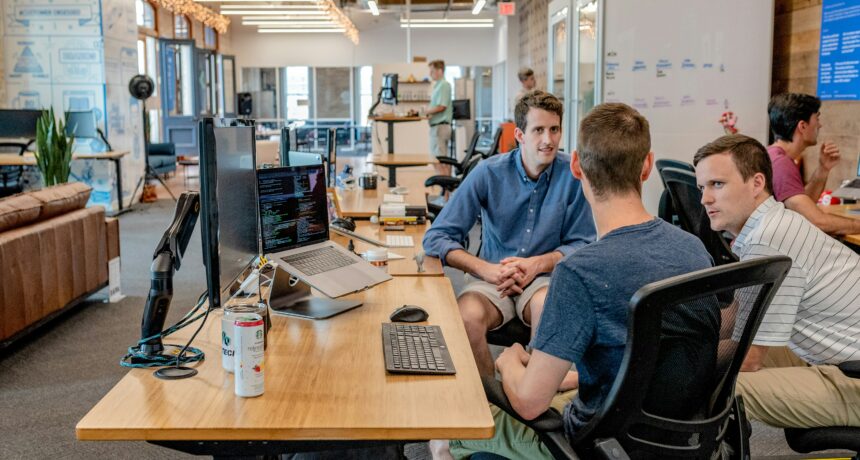How To Prepare for a Panel Interview?
Finding your dream job takes a lot of work. If you’ve found a company that aligns with your values and submitted a stellar application, you’ve done half the work already! But there’s another crucial step: the interview.
No matter how prepared you are, interviews are nerve-racking. If attending a meeting with one interviewer isn’t hard enough already, gearing up for a panel interview can feel like a nightmare.
Don’t fret. While they may seem scary at first, panel interviews are an incredible opportunity to get to know a prospective employer from a variety of perspectives and to let yourself shine.
With some intentional forethought and preparation, you’ll be ready to face a panel interview and land the job. Here’s everything you need to know.
What Is a Panel Interview?
A panel interview is a style of interview wherein a group of people, panelists, all gather and collectively ask questions of the candidate. There are typically two to five panelists from various departments of a company.
Often, there will be an HR representative present, in addition to managers or even team members from the candidate’s prospective department.
Why Do Companies Use Panel Interviews?
Here are some common reasons companies choose a panel interview format.
Diversity and Equity
Panel interviews are a great way to ensure that the hiring process is equitable. When only one person conducts an interview, they may bring internal biases to the conversation without realizing it. A limited perspective can affect hiring outcomes.
When are multiple panelists are present, they represent diverse backgrounds and roles in the company. It ensures a greater chance the hiring process will be consistent and fair from one candidate to the next.
Group Dynamics
Panel interviews are a great way to see how a candidate handles group interactions. If the role is part of a team or works with the public, it is crucial that a candidate can demonstrate excellent social skills and relate to many people at once.
Efficiency
In business, time is money! By having multiple people interview a candidate at once, a business can bypass the need to schedule a series of interviews and save precious time in the hiring process.
Types of Panel Interviews
A panel interview, in itself, is a common type of interview format. But not all panel interviews are alike either. Here are a few differences you can expect.
Structured vs. Unstructured
In some panel interviews, panelists will have a systematic approach to asking questions, leading to a very structured conversation. These interviews typically follow the same pattern from one candidate to the next.
Unstructured interviews are open-ended and allow the flow to shift and evolve depending on how the conversation progresses.
Formal vs. Informal
Most commonly, panel interviews are formal and planned in advance. The reasoning here is that it takes time to schedule and coordinate with all panelists.
However, more casual panel interviews can also be suitable, depending on the company culture, the position, and other factors. Informal interviews are more like freeform conversations, creating a friendly environment with less pressure on the candidate.
Common Questions in a Panel Interview & How To Answer
Some interview strategies are more common than others. To help you prepare, consider your answers to the following questions.
“Tell Us About Yourself.”
Studies have shown that successful interviewers commonly begin a conversation with broad, general questions. This technique allows the candidate to answer with the information they feel is important.
While it’s an effective way for a panelist to learn about the candidate’s values and priorities, it’s an even better opportunity for you to shine.
Be prepared for open-ended questions and have an elevator pitch ready that efficiently sums up your experiences, values, and goals.
“What Are Your Strengths/Weaknesses?”
This question is an opportunity to show both confidence and humility. Before your interview, think intentionally about what you bring to the table and what you need to improve.
Be honest with yourself and with the interviewers. Showing that you’re in touch with both sides of yourself is a huge plus during a panel interview.
“Why Do You Want to Work Here?”
When a panelist asks you this question, they’re testing your knowledge of the company and seeing if your values align.
Spend some time reading about the company’s history before the interview. Get acquainted with the company culture. Consider how you can fit into it and what you can add.
“Tell Us About a Time When…”
Asking candidates to describe a specific experience in a previous workplace is a classic interview tactic.
Typically, panelists want to hear about a challenge you faced with a coworker or a client. Have a few stories in your back pocket that showcase how you can overcome adversity in the workplace.
How to Prepare for a Panel Interview
Here are three essential steps to prepare for your panel interview.
Research Panelists
Researching the company is essential, but so is researching the panelists! If you’ve learned who will be on the panel, take some time to look up those individuals on the company website or LinkedIn.
This insight will help you walk into an interview room with confidence. You’ll be able to ask specific questions of the panelists and reference their past accomplishments or projects.
Knowing your interviewers also allows for a deeper conversation. It demonstrates that you’ve invested real time and energy in preparing for the interview, and it shows that you care.
Practice Talking to a Group
The main challenge of a panel interview is knowing how to divide your time and attention between the panelists.
When asked a question, try to make direct eye contact with the specific individual that asked the question, but don’t neglect the others. Ensure it feels like a group conversation the whole way through, not a bunch of individual one-on-ones.
You can practice this skill before your interview by conversing with friends. Give them your elevator pitch and let them ask you questions. They can give you feedback to help you walk into the interview room with confidence.
Bring Multiple Copies
You should always bring backup copies of your resume and cover letter to an interview. For a panel interview, make lots of copies. Never assume that everyone on the panel knows your history or has seen your resume.
If you arrive and notice that everyone already has copies of your application, the panel will still see that you are well-prepared and put in the forethought of bringing extra copies. It’s a simple yet strong way to demonstrate the qualities that make you a good candidate.
Conclusion
With high levels of job openings across the country, now is a great time to find and apply for the job of your dreams. If you’re scheduled to participate in a panel interview, use this guide to help you prepare.
And if you’re a company trying to hire quality candidates, why not reduce your workload by partnering with ScoutLogic? We offer background check and screening services, freeing up time for you to focus on finding the best candidates for the job. Get in touch today!
Download this free guide to go into the searching process prepared. This guide includes actionable steps to:
- Gather your requirements
- Determine vendors
- Check references
- Determine success metrics





